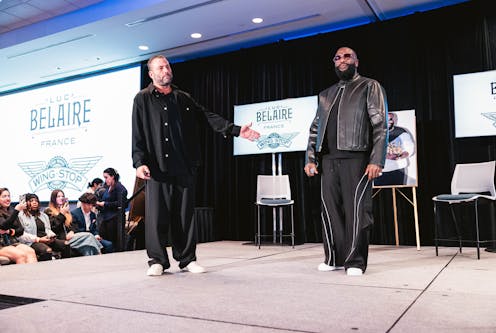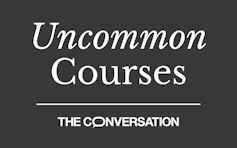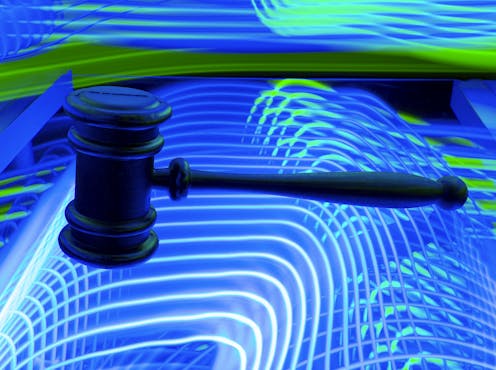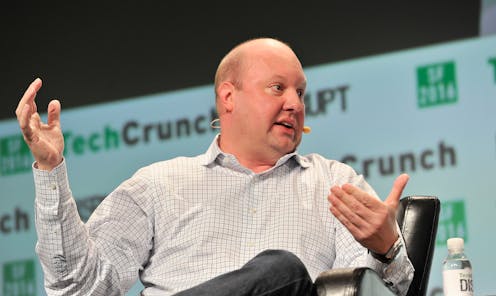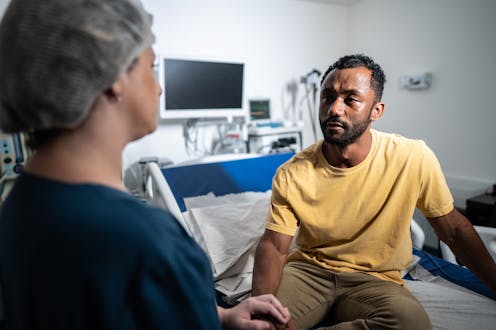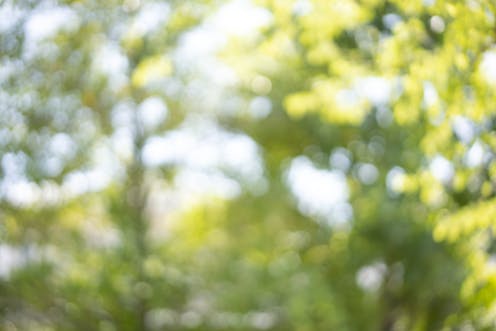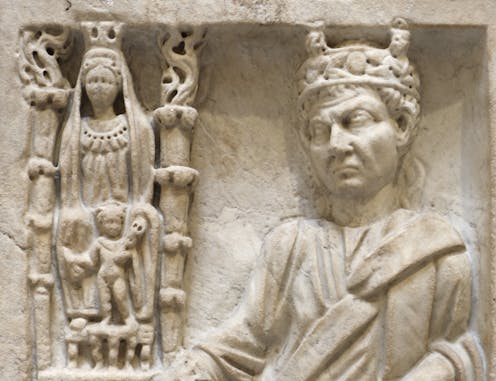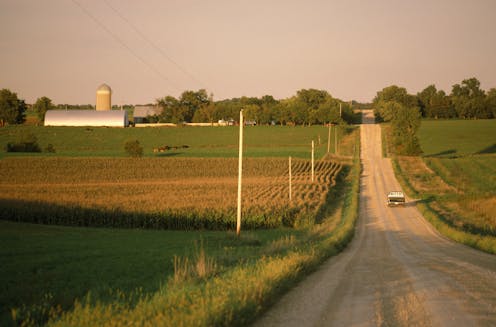IceCube researchers detect a rare type of energetic neutrino sent from powerful astronomical objects
- Written by Doug Cowen, Professor of Physics and Professor of Astronomy and Astrophysics, Penn State
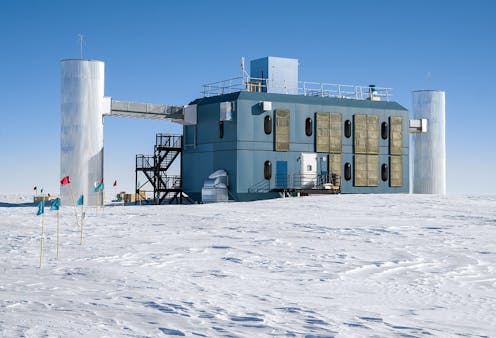 IceCube sits on tons of clear ice, allowing scientists to make out neutrino interactions. Cmichel67/Wikimedia Commons, CC BY-SA
IceCube sits on tons of clear ice, allowing scientists to make out neutrino interactions. Cmichel67/Wikimedia Commons, CC BY-SAAbout a trillion tiny particles called neutrinos pass through you every second. Created during the Big Bang, these “relic” neutrinos exist throughout the entire universe, but they can’t harm you. In fact,...


